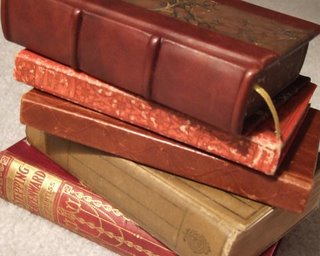
When the school year ends, your body goes into a state of decompression. Minor episodes occur over Christmas and spring breaks, but once your body recognizes it has made it through nine months of students and school-related issues, it crashes.
Unfortunately, my brain still hasn't realized I'm done with the year. Perhaps you've heard of teachers having dreams in August about the coming year. I can attest to that. Sometimes I have a flawless day in my reverie, but normally I stress over all that could go wrong. Dreams pertaining to this year still plague my nights, though. School has been out since June 7, and yet I keep planning versions of the last couple days of school during my sleeping hours and having conversations with my students as we run into each other in my imaginations.
When awake and coherent, I have been indulging in some quilting, made difficult with frequent showings of our townhome. My sewing machine, mat, rotary cutter, and fabric take over the dining room, and it is a minor battle to stow them away again, as they don't look very attractive to prospective rentors. Since I don't know when my hobby is to be interrupted again, I've preferred just letting everything remain stored.
So my indulgence has been reading. No surprise coming from an English teacher who, even at a young age, was never found far from a book. In truth, a key requirement when searching for a new purse is whether or not it can adequately hold a book (or three) without seeming obvious.
I finished Truman Capote's In Cold Blood. This analysis of a murdered family and the trial and executions following can be plodding in parts, but I appreciate the extensive length Capote goes to in covering all aspects. I haven't seen the movie Capote, yet I probably will. My only squeamish thought keeping me from renting the movie immediately is that of watching footage of the murders, as they were gruesome in the book. But I also recognize the movie is focused on Capote's writing of the book and not just the contents of it.
Then came The Curious Incident of the Dog in the Night-Time. I had a student with Asperger's, so reading a 'mystery' told from an autistic protagonist allowed me to better understand her.
The Kite Runner has enjoyed popularity, warranted in my view. The story begins in Afghanistan and follows the relationship of a boy growing up comfortable in his father's status and the novel centers on how he relates with a servant while revealing how the country's core is changing politically. A betrayal causes a rift, and scenes fall upon each other in quick succession. I had known of the twist, as it spilled out of the mouth of a friend when she assumed we had all read it, but knowing what was the surprise didn't detract too much from the read. Kite fighting is a new concept, and I would love to watch it in action someday.
Since it had been recommended both by a colleague and student, I just finished My Sister's Keeper. I appreciated the use of first-person narrative switching from character to character, and Jodi Picoult writes them convincingly, though I struggled with sympathizing with all of them. Nevertheless, it fostered my desire to get inside people's heads, and it brought up interesting issues of stem-cell research and genetic engineering. This book is geared to be commercial and doesn't delve too deeply into those topics, but I found myself pondering the issues in my mind, trying to find my own beliefs when faced with the ethics of the situation.
So there is my literary summer so far, excluding some forgettable ones. I have some more on hand that have been recommended. One that I'm currently reading is called Ella Minnow Pea, premised on a small island community who reveres the man who coined the sentence: "The quick brown fox jumps over the lazy dog." One day a letter tile falls from the monument, and the town deems this a sign from the other side, that the letter is to be stricken from use. More tiles fall as the story unravels, and the author ceases using those letters as he writes his epistolary novel. Books are destroyed and consequences are handed out if one speaks a word formed with a banished letter or is found to be in the possession of correspondence containing such anathema. We'll see how it develops.
No comments:
Post a Comment